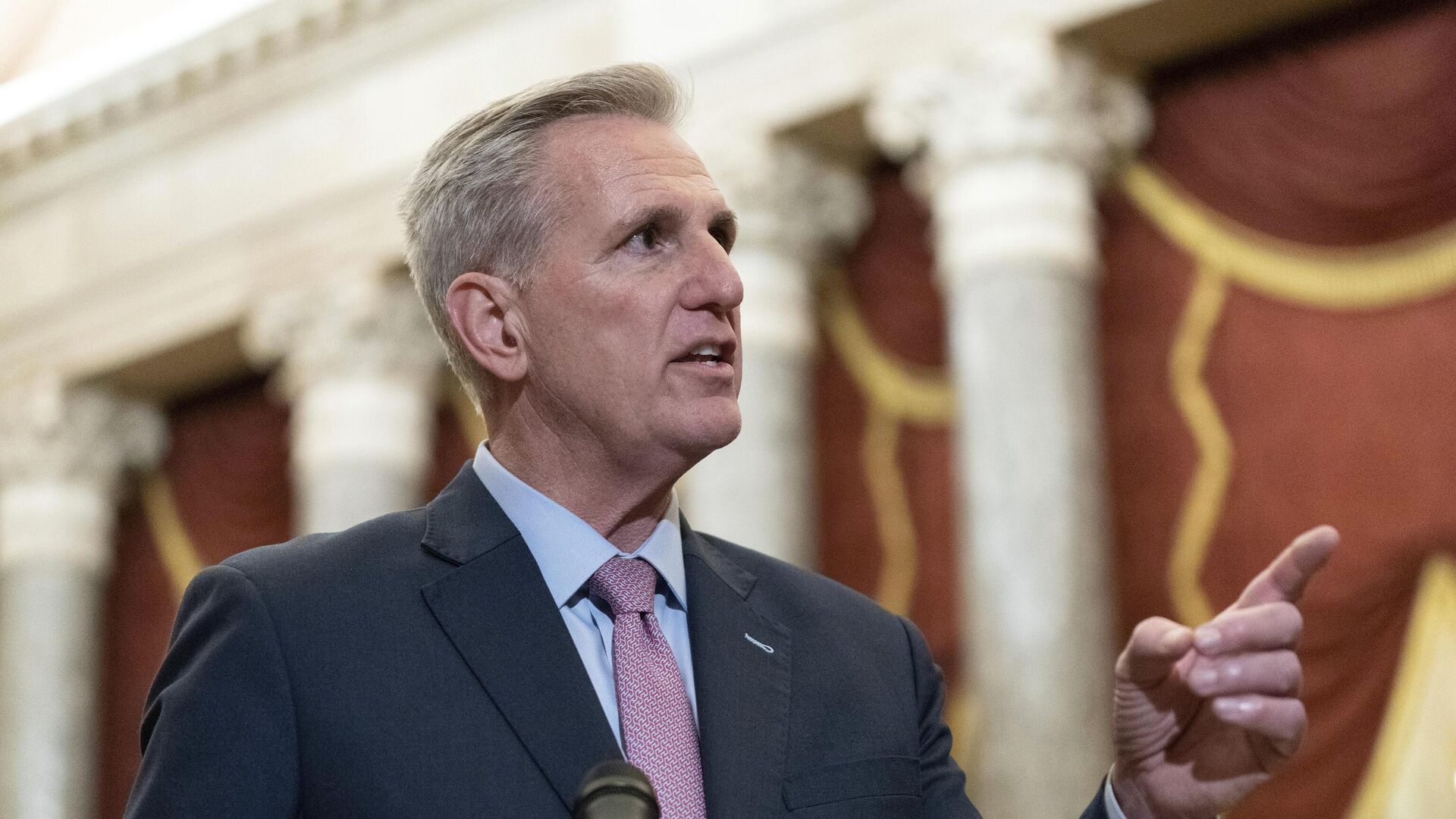https://sputnikglobe.com/20230129/house-speaker-mccarthy-will-meet-with-president-biden-on-february-1-to-discuss-debt-ceiling-1106803734.html
House Speaker McCarthy Will Meet With President Biden on February 1 to Discuss Debt Ceiling
House Speaker McCarthy Will Meet With President Biden on February 1 to Discuss Debt Ceiling
Sputnik International
US House Speaker Kevin McCarthy told the CBS News broadcaster on Sunday that he was planning to hold a meeting with President Joe Biden on February 1 to discuss a "responsible" debt ceiling and take control of "runaway" spending.
2023-01-29T20:07+0000
2023-01-29T20:07+0000
2023-01-29T20:07+0000
americas
us
kevin mccarthy
us politics
us politics
joe biden
debt
debt
us debt
debt ceiling
https://cdn1.img.sputnikglobe.com/img/07e7/01/07/1106102072_0:0:3073:1728_1920x0_80_0_0_b3107a6441b404dd2417ecdfa3625f4d.jpg
"Well, we're going to meet this Wednesday. I know the President said he didn't want to have any discussions, but I think it's very important that our whole government is designed to find compromise. I want to find a reasonable and a responsible way that we can lift the debt ceiling, but take control of this runaway spending," McCarthy told the broadcaster. On Wednesday, McCarthy called Biden's refusal to discuss the state debt ceiling "irresponsible" and warned that a delay in negotiations would increase financial risks for the United States. The House Speaker also called the US' state debt surpassing $31 trillion or 120% of the gross domestic product "the greatest threat to America" and said that he was not completely against the decision to increase the state spending, but was advocating for a "responsible" debt ceiling. Earlier this month, US Treasury Secretary Janet Yellen warned that the US would soon reach its outstanding debt limit, with the US national debt now amounting to $31.46 trillion. Last week, the Treasury said it had begun taking extraordinary measures to avoid a government debt default by temporarily suspending payments not immediately needed for essential programs.
americas
Sputnik International
feedback@sputniknews.com
+74956456601
MIA „Rossiya Segodnya“
2023
Sputnik International
feedback@sputniknews.com
+74956456601
MIA „Rossiya Segodnya“
News
en_EN
Sputnik International
feedback@sputniknews.com
+74956456601
MIA „Rossiya Segodnya“
Sputnik International
feedback@sputniknews.com
+74956456601
MIA „Rossiya Segodnya“
kevin mccarthy, joe biden, debt, debt ceiling, us politics
kevin mccarthy, joe biden, debt, debt ceiling, us politics
House Speaker McCarthy Will Meet With President Biden on February 1 to Discuss Debt Ceiling
MOSCOW (Sputnik) - US House Speaker Kevin McCarthy told the CBS News broadcaster on Sunday that he was planning to hold a meeting with President Joe Biden on February 1 to discuss a "responsible" debt ceiling and take control of "runaway" spending.
"Well, we're going to meet this Wednesday. I know the President said he didn't want to have any discussions, but I think it's very important that our whole government is designed to find compromise. I want to find a reasonable and a responsible way that we can lift the debt ceiling, but take control of this runaway spending," McCarthy told the broadcaster.
On Wednesday, McCarthy called Biden's refusal to discuss the state debt ceiling "irresponsible" and warned that a delay in negotiations would increase financial risks for the United States. The House Speaker also called the US' state debt surpassing $31 trillion or 120% of the gross domestic product "the greatest threat to America" and said that he was not completely against the decision to increase the state spending, but was advocating for a "responsible" debt ceiling.
Earlier this month, US Treasury Secretary Janet Yellen warned that the US would soon reach its outstanding debt limit, with the US national debt now amounting to $31.46 trillion. Last week, the Treasury said it had begun taking extraordinary measures to avoid a government debt default by temporarily suspending payments not immediately needed for essential programs.


